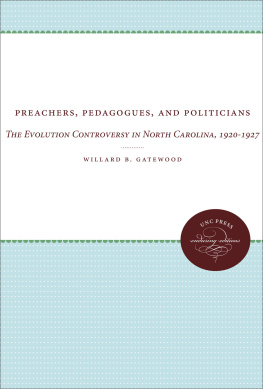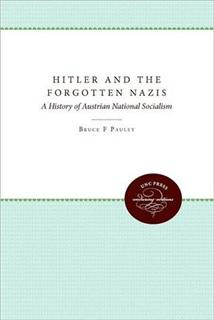CHAPTER 1
THE WHISTLE TOOTED , the smokestack belched a round puff of white steam and black smoke, the little locomotive groaned, gasped, lunged and fell back, strained and went forward, and with much bell-ringing, drive wheels clutching at rails, and accelerated puffing, began to catch speed.
And there we stood, our valises at our feet, our heads twisting.
Then from around behind the tiny railroad station a woman came running, arms outflung toward us.
Lucy Morgan! she screamed at me. Mabel! She grabbed us. Welcome to Penland!
Our embraces accomplished, we stood back from each other, and she looked Mabel and me up and down. Were so happy to have you here, she declared, and then as she noticed our surreptitious glancing about she laughed. If you look sharply, from here you can see a church and three houses. But in the wintertime with the leaves off the trees you can see five houses.
It was June 1,1920. We were standing beside the tracks of the Clinchfield Railroad at Penland Station in Mitchell County, North Carolina, high in the Blue Ridge Mountains. Our greeter, who had come down from the Appalachian School up on Conley Ridge above the station, was Miss Amy Burt, who in the regular school months was Dean of Women at the normal school at Mount Pleasant, Michigan. She was a friend of my brother, the Reverend Rufus Morgan, an Episcopal minister and founder of Appalachian School, and it was through their friendship that I had been able to take my teacher-training work at her school. Mabel Fauble, who had got off the train with me, was a good friend who had also completed the two-year course at Mount Pleasant. Miss Burt had been spending what she called her summer vacations at Appalachian, an Episcopal institution under the supervision of the bishop of the diocese. We were soon to find, however, that vacation was hardly the word for what she did there.
While were waiting for the wagon to get down the hill, said Miss Burt, I want you to meet some of our Penland neighbors. Youll soon be discovering for yourselves that they are wonderful folk. Whereupon she took us into the station and introduced us to Mr. Henry Meacham, station agent and telegrapher and, we would not be long in finding out, a distinctly unique individual. A delightful character, Miss Burt said of him as we left. Ill tell you more about him. But now we must go to the post office and pick up the school mail.
In addition to the station and five houses, Penland had a post office and a general store. The community sat in the heart of a region abounding in mica, kaolin and feldspar, and its people were for the most part engaged in the mines.
At the post office we met Mr. A. C. Tainter. Miss Burt told us that he owned and personally operated the general store. He also kept books for one of the mining companies. If Mr. Tainter had been wearing a red suit trimmed in white fur we would have thought we had found Santa Claus in the flesh. He not only looked like the old gentleman from the North Pole country and had the same proportions, but he also had the same twinkle in his eyes and the same genial countenance; and we were reminded of a bowlful of jelly as he laughed. Through the weeks and months and years ahead we were to learn that Mr. Tainter was not just the keeper of the general store; he was the towns creditor, the communitys friend, a friend of everybody, but particularly of the fellow in need, as I myself happily would learn.
He took us over to his store, where we met some other people of the community who had walked down to see the train pull in and to get any mail that might have come on it. About that time the wagon from the school drove up.
I dont see any place for us to sit, I said.
Sit? Miss Burt laughed. The wagons for your baggage, she revealed. Well walk. She waved her hand in the general direction of Conley Ridge. Its just up there a little way. The roads too rough for riding. Going up there in a wagon would shake your teeth out.
We loaded the heavier luggage on the wagon, and it started up the hill. We picked up the smaller pieces and started walking. About halfway up the mile slopeand Im certain that must have been one of the longest miles I had ever walked, though I had been born and reared in the mountains and all my life had been accustomed to walkingwe paused for breath under the spreading arms of a giant oak. Then we struck out again up the steep, rocky path, through a blind gate, through a strip of dense woods, and across a vegetable garden that we learned was the schools. Finally, there was the school itself.
We stood a moment and looked at the school. Then we turned and looked down the twisting, tortuous steep path we had surmounted. It had been a hard climb, and we had come a long way up; but we were here. Later I would realize that the climb from the station to the top of the ridge had been only the beginning of the path of my lifes work. That path would continue to offer me just as steep a grade, just as many stones over which to stumble, just as twisting and challenging a course. But when I look back now over the way I have come, I see ahead spiritual vistas just as beautiful and rewarding, promising and challenging as I saw in actuality on that first day.
The Appalachian School was a gracious bungalow with a wide porch. Originally built as a rectory, it had grown and developed through the care and efforts of my brother Rufus and his interested friends and church groups. We hastened inside to discover an oak-paneled living room about eighteen by thirty feet in size, with great oak beams overhead. There was a huge fireplace, and on this cheerful day casement windows let in floods of sunlight.
Miss Burt told us that shortly before our arrival bedrooms had been added by completing the second floor, which had been accomplished with the installation of dormer windows. Also, with the aid of government bulletins, Rufus and Mr. George Tim Wyatt, the schools farmer, had recently put in plumbing. They had bought a water wheel for the cold spring and piped the water into Morgan Hall, the name Miss Burt had given the structure in honor of my brother.
Now, ready for the students when they arrived in the fall, was a bathroom! And in the mountains four decades ago a bathroom with running water was something to talk about.
Rufus and I had grown up in another mountain community in far western North Carolina, before good roads and accredited schools had penetrated that region. Even before his high school days were over Rufus had dreamed of such a school for his beloved mountain people. In later years he, together with our bishop, had planned to build a school in some community where the opportunities he wanted to offer were lacking, a community whose people were of substantial stock, the sort in which one might build with success.
I was soon to realize that no happier choice could have been made than Penland. These were great people, choice Americans. Here families of Buchanans still read their Bibles brought from England and traced their ancestors to President Buchanans brother. The family of our Mr. Wyatt had emigrated from Virginia to Penland, and in the Wyatts flowed the blood of Sir Francis Wyatt, a colonial governor of Virginia. Here was a family in which inherent culture lay, here was a whole community of such blood and bearing.




